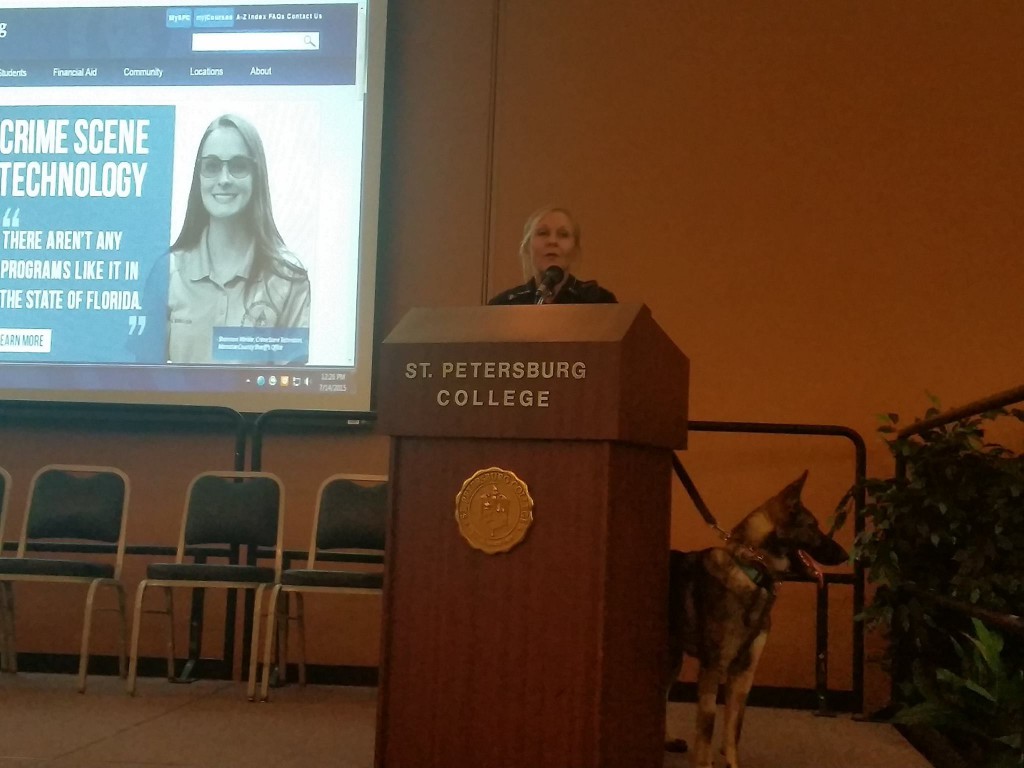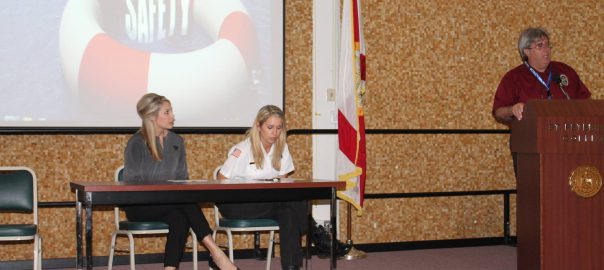
SPC’s College of Public Safety students, faculty and staff members attended the Dog Days of Summer BBQ last Tuesday, July 14th. In addition to enjoying a delicious BBQ lunch, catered by Port-A-Pit, students, faculty and staff were provided with the opportunity to listen to Officer Barbara Baugher’s story about how she lost her K-9 partner. It’s not unusual to hear on the news how K-9 officers and their K-9 partners are busy fighting crime. However, what does seem uncommon is to hear about about the loss of a K-9 partner from an officer’s perspective. Officer Baugher graciously shared her story at the BBQ luncheon.
Marianne Seay, Student Life & Leadership Coordinator at SPC Allstate, shared: “Barbara Baugher from the Pinellas County Schools Police Department came out to talk about how she recently lost her K-9 partner to a sudden illness. She brought along with her Amanda Hanson, Training Director from To The Rescue Dog Training. Amanda talked about how she rescues dogs and trains them with the possibility of having a law enforcement officer adopt them for their training needs.”
Regarding canine training needs, To The Rescue Dog Training provides training in:
- Manners
- Obedience
- Behavior
- Personal protection
To The Rescue Dog Training also provides service dog and therapy dog training services. Services are available to the public.
The BBQ was a success, and we want to say thank you to Officer Baugher for coming to the Allstate Center and so kindly sharing her inspirational story and to Amanda Hanson for talking about how she rescues dogs and gives them a new beginning.
If you are interested in learning more about To The Rescue Dog Training, you can call Amanda at 855-636-4911. Her email address is info@dogtrainingtotherescue.com. You can also click here To The Rescue Dog Training.





